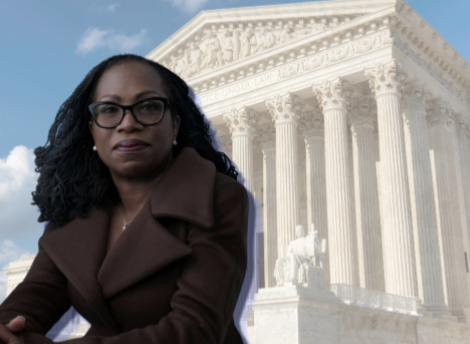The Supreme Court reconvened on Oct. 3 after its summer recess to begin a term that brings both new cases and a new associate justice. In just her first week, Justice Ketanji Brown Jackson has already made headlines. It was expected that Justice Jackson would be an outspoken critic on a bench that leans conservative by a six-three margin.
Specifically, in Merrill v. Milligan, a case which concerns whether Alabama violated the Voting Rights Act in creating its voting districts, Jackson has spoken more than any of her colleagues on the bench, according to Supreme Court expert Adam Feldman. Historically, the Supreme Court has upheld protections for racial minorities in the districting process. However, the Voting Rights Act is certainly not ironclad, as a more liberal bench already overturned aspects of it in 2013.
While the Merrill case may have profound implications for future Congressional elections, it is not the only case focused on race on the Court’s docket. Indeed, two cases concerning both Harvard and the University of North Carolina’s use of race in admissions, also known as affirmative action, have been taken up by the Court. Previously, the cases were argued together. However, Jackson recused herself from the Harvard case when she was appointed Supreme Court Justice. In the Harvard case, the plaintiffs, Students for Fair Admissions, have argued that race-conscious admissions programs by the university discriminated against white and Asian applicants by giving preference to Black, Hispanic and Native American applicants. While previous cases focused on the permissibility of using race in admissions more broadly, these cases may prove more persuasive to the Court because of their novelty.
Another major case is 303 Creative v. Elenis where web designer Lorie Smith is suing Colorado over the state’s anti-discrimination laws that would force her to design a website that promotes same-sex marriage, which she is religiously opposed to. This case is very similar to the Masterpiece Cakeshop. Ltd. v. Colordao Civil Rights Commission (2018) case where the Court issued a narrow ruling that the cakeshop did not need to bake the cake for a gay couple because of the specific lack of religious neutrality Colorado used. However, this case will not be about religious liberty concerns, but instead about free speech and if Ms. Smith can be compelled to use speech that she disagrees with. While the Supreme Court dodged this question four years ago, they appear poised to tackle it now. The implications for overturning these discrimination protections are immense, and this case will certainly test the limits of the First Ammendment.
Whatever decisions are made, the Court will have another headline-making term in the coming months. While Jackson will not likely agree with many of the majority opinions, she will certainly make her voice heard as a new face on the bench.















































